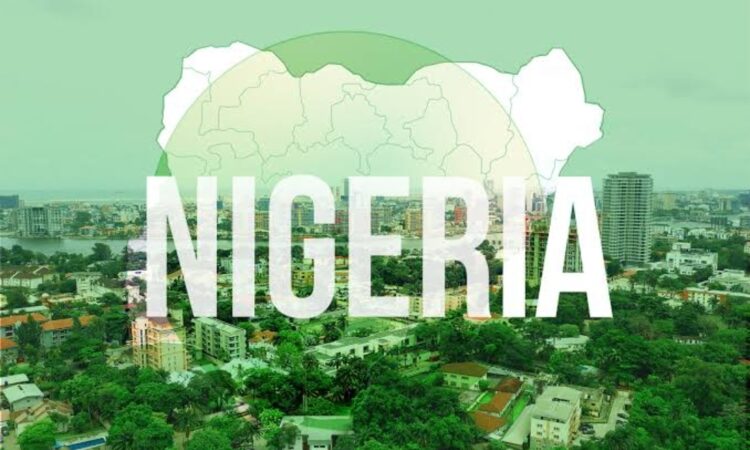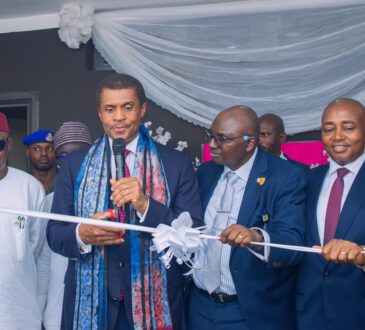
Nigeria is home to over 200 million people and abundant natural resources, but who actually owns the land in this large and diverse country? The question of land ownership and rights in Nigeria has a complex history tied to colonialism, traditional customs, military rule, and ongoing debates. Determining who the ultimate “owner” of Nigeria is involves examining the changing policies, laws, and power dynamics around Nigerian land over the centuries.
Land ownership in Nigeria has transitioned between communal systems, centralized control by leaders, privatization under colonial rule, and both private and federal government administration in the post-independence era. With such a multifaceted history, there is no single entity that can claim total ownership over all Nigerian lands. However, an interplay of government, private citizens, communities, and even foreign corporations hold stakes and rights over different parts of the Nigerian territory.
This article will delve into the layered history and current status of land administration in Nigeria. It will analyze the roles of different groups in shaping control and ownership of lands within Nigeria’s borders and attempt to unpack the complex question “who is the owner of Nigeria?”
Pre-Colonial Era
Prior to British colonization, most of the 300-500 ethnic groups in Nigeria practiced communal land ownership. In rural areas, lands were collectively owned by villages, clans or families rather than individuals. Communal lands were used for farming, hunting, and community activities. Usage rights were allocated to community members by family or village heads.
In parts of Northern Nigeria, lands occupied by nomadic groups were open to use by any nomads in that region. There was shared access rather than exclusive control.
Among centralized societies like the Northern Emirates and Southwest Kingdoms, the monarchs controlled allocation and usage of lands. The King or Emir granted rights to subjects but retained ultimate ownership and authority over lands.
Despite some centralization, pre-colonial land ownership emphasized collective access and use with different groups recognizing each other’s usage rights, especially for farming and grazing.
Colonial Era Changes
Britain’s colonization of Nigeria starting in the early 1900s brought significant changes to land ownership patterns. The British imposed Western property concepts of private, individual land ownership across communities that historically had customary communal tenure.
In 1900, the Land Proclamation gave ownership of lands in Northern Nigeria to the British monarch. All “natives” were only occupants who had to pay rent to maintain rights granted by the Crown.
In Southern Nigeria, the Crown Lands Proclamation of 1910 enabled colonial governors to acquire any portion of land compulsorily for the Crown’s use and benefit. Local communities still inhabited lands allocated to them but the British administrators had overriding powers.
To support colonial resource extraction and cash crop exports, the British introduced individual land ownership by giving out Certificates of Occupancy. Group rights were converted to individual titles under British law.
This began concentrated foreign and local elite control over Nigerian land, dismantling pre-colonial communal systems. The colonial transition to privatization laid the roots for future problems around land inequality, conflicts and disproportionate alienation of people from lands they historically occupied.
Post-Independence Era
Nigeria’s independence in 1960 ushered in another era in land administration as government leaders grappled with unifying the different regions.
Ownership was centralized under the post-independence Federal Government which held expropriation rights over all lands. The Land Use Act of 1978 vested control of lands in state Governors to hold in trust for the people and manage allocation.
Private land ownership under Certificate of Occupancy continued with citizens having rights to use and transfer land based on leases given by state Governors. Despite ongoing private holdings, the Act ultimately made the government overseer of Nigerian land on behalf of citizens.
Indigenous local ownership was further eroded by unchecked appropriation of lands by military leaders during Nigeria’s periods of military rule. Corruption led to allocation of community lands to military officials and their allies.
Another major issue has been the acquisition of large land tracts by foreign corporations, especially for oil and gas in the Niger Delta. This has often displace local populations without adequate compensation, sparking protests.
While individuals and communities still hold some property rights, the government remains the primary overseer of land allocation. The lack of major reforms means land administration still tends to favor elite interests over average Nigerians.
Current Status of Land Ownership and Administration
- The 1999 Constitution vests control of all lands in the Governor of each Nigerian state to hold in trust. They have powers to allocate statutory rights of occupancy and regulate land usage.
- Private land ownership remains, with individuals and families having rights over lands allocated under certificate of occupancy or customary rights. However, the state still has authority over all lands within its borders.
- Rural communities retain communal tenure over lands for farming and grazing. But customary rights are subordinate to state powers of appropriation for “overriding public interest.”
- Women rarely hold formal title over lands which impacts their socioeconomic rights. Most married women have access to land through their husbands under discriminatory customary practices.
- Government ownership and allocation of land is plagued by lack of proper land registry and record keeping systems. This leads to recurrent ownership disputes.
- Foreign companies hold long-term leases over large tracts of land, particularly in the oil-rich Niger Delta. The petroleum industry remains a major holder of land rights acquired from government.
- Ongoing debates question whether vesting near absolute control over all land in governors promotes inequality and hurts small landholders. But reforms have stalled.
Overall, while no single entity has outright ownership of all Nigerian lands, the Federal and State governments remain the strongest custodians empowered to control and allocate land rights. Since the colonial era disrupted communal systems, land administration has been used by those in power to their advantage. The complex status quo sustains inequality, conflict and dispossession of vulnerable groups and ensures the question of who really owns Nigeria has no clear answer.
Conclusion
Tracing the history of land ownership in Nigeria reveals an intricate legacy of customary communal tenure, colonial privatization and post-independence state custodianship. While groups and individuals still hold private rights, the government retains the authoritative role of granting and regulating land rights. However, greater equity and prevention of dispossession of ordinary citizens requires giving communities and individuals greater control. Until comprehensive land reforms come, Nigeria’s complex land ownership status will remain neither purely state-centric nor communal, with the future balance of rights uncertain.




